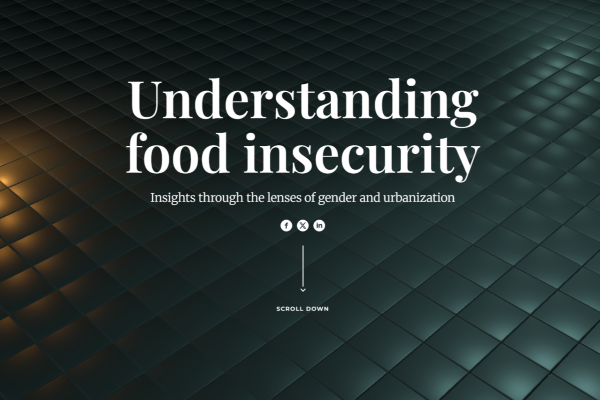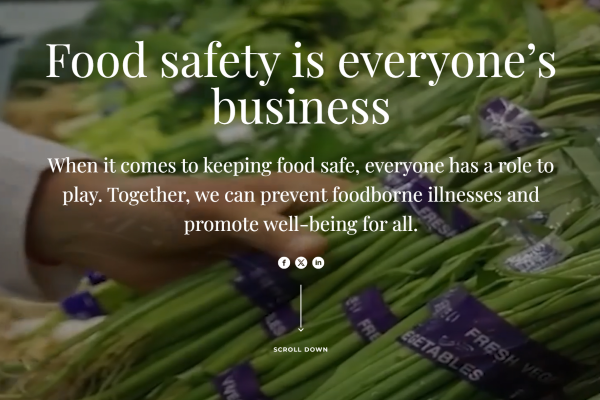Safe food for everyone
In the Near East and North Africa (NENA) region, ensuring food safety is fundamental to protecting health, building consumer trust, and supporting resilient agrifood systems. Under the ‘Food security and healthy diets for all’, regional priority 2 (RP2), is supporting countries to improve food safety governance; enhancing multi-stakeholder collaboration; and ensuring consumers have access to safe and nutritious food.
Food Safety in the Near East and North Africa: A Strategic Imperative for Sustainable Agrifood Systems
Food safety is a strategic imperative for public health, sustainable development, and the transformation of agrifood systems in the Near East and North Africa (NENA) region. The risks are heightened by rapid demographic growth, climate-induced vulnerabilities, fragmented governance structures, and increased exposure to biological and chemical hazards along the food supply chain.
When food is not safe, it not only perpetuates disease, malnutrition, and economic losses but also undermines progress towards the Sustainable Development Goals (SDGs).
Vulnerable populations are disproportionately affected, while restrictions on trade and market access weaken the potential of food-producing enterprises and jeopardize regional food security and nutrition.
The complex dynamics at the human–animal–plant–environment interface reinforce the need for integrated and multisectoral approaches to food safety. Within this context, food safety emerges as both a cross-cutting challenge and an opportunity for systemic transformation.
This strategic framing draws on FAO’s vision for the Four Betters - better production, better nutrition, a better environment, and a better life - while aligning with the One Health Joint Plan of Action (2022–2026).
Food safety is positioned as a key enabler of resilient, inclusive, and sustainable agrifood systems, and as a critical lever for public health protection, antimicrobial resistance (AMR) mitigation, and environmental stewardship.
FAO Regional Work on Food Safety and Quality
The FAO Regional Office for the Near East and North Africa (RNE) is committed to advancing food safety and quality across the region through a strategic framework that supports resilient, inclusive, and sustainable agrifood systems. This regional strategy is aligned with the FAO Strategic Priorities for Food Safety under the FAO Strategic Framework 2022–2031 and reflects FAO’s commitment to the Four Betters: better production, better nutrition, a better environment, and a better life.
The strategy is structured around five interrelated strategic objectives:
- Modernize Food Governance
- Strengthen institutional capacities and promote science- and evidence-based policies to enhance food safety governance and regulatory coherence across the region.
- Strengthen Integrated Agrifood Systems
- Support the development of resilient agrifood systems that ensure food safety from production to consumption, fostering sustainability and inclusivity.
- Enhance Risk-Based Food Safety Management and Surveillance
- Improve risk assessment, monitoring, and control mechanisms to proactively manage food safety hazards and reduce exposure to biological and chemical risks.
- Improve Food Chain Information, Education, and Communication
- Promote awareness, education, and stakeholder engagement to encourage safe food practices and informed decision-making throughout the food chain.
- Establish Integrated Data Systems for Emergency Preparedness and Response
- Develop robust data infrastructures and early warning systems to enable timely, coordinated responses to food safety emergencies and emerging threats.
Through this strategy, FAO RNE aims to support countries in the NENA region in building robust, science-based food safety systems.


